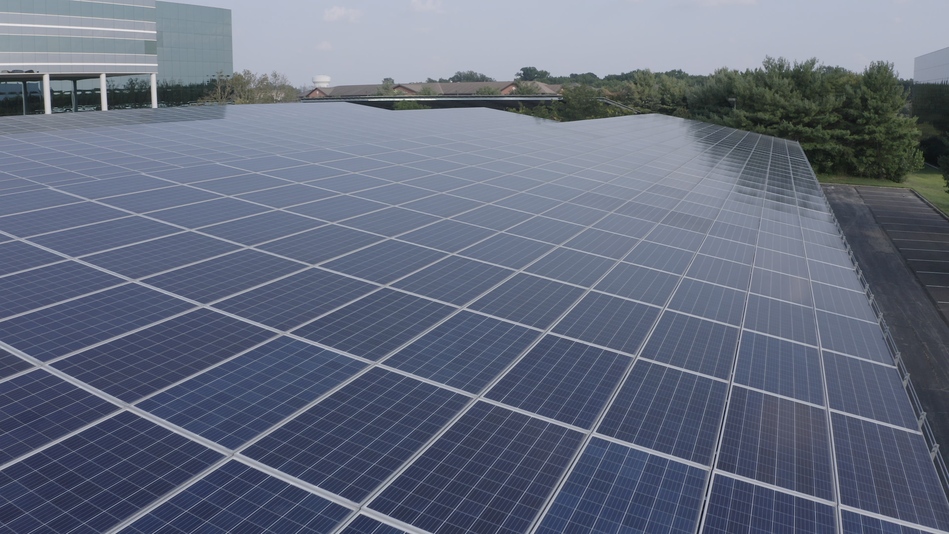The City of Yes for Carbon Neutrality zoning text modification was approved by the City Council on December 6, 2023. This amendment addresses out-of-date zoning code requirements that impede the development and application of green infrastructure and technologies in New York City. It is the first of three that the Adams administration presented last year. The zoning text had no mention of solar panels until an amendment was made in 2012; through this City of Yes amendment, the City examined multiple facets of the zoning text that needed to be amended to allow the City to advance its sustainability goals of reducing greenhouse gas emissions by 80 percent by 2050. The zoning text, as is, could not accommodate many types of modern green infrastructure and technology, which did not exist at the time the zoning text was originally created in the early 1960s.

Changes to the amendment's 17 policy provisions include updating recycling, composting, and water regulations; supporting electric vehicles and micromobility options; and expanding the use of rooftop solar panels. Additionally, the amendment makes it easier to install battery storage systems for solar grid networks in residential areas and allows for the installation of solar panels on over 8,500 acres of city parking lots.
To accommodate building electrification and ecologically friendly retrofits, previous limitations on building thickness and height will also be loosened. The amount of commercially designated land that may accommodate electric vehicle charging stations has more than doubled as a result of this adjustment. The amendment, among other things, encourages rooftop food production by expanding the use of rain gardens and permeable pavement and by cutting red tape. The amendment's complete text is available here.
Twenty-five neighborhood boards and the borough presidents of Manhattan, the Bronx, Brooklyn, and Queens gave the amendment their strong support during the review process. The amendment was approved by the City Council 38 to 8. The votes cast against them were cast by Council Members Ari Kagan, Vickie Paladino, Inna Vernikov, David Carr, Joseph C. Borelli, Joann Ariola, and Kalman Yeger. Members of the Council Darlene Mealy, Linda Lee, and Marjorie Velazquez were not present for the vote; member Christopher Marte was tagged as "non-voting," and member Charles Barron did not participate in the vote. Within four days, the modifications will take effect.
The reviews of the other two City of Yes amendments are presently in the preliminary stages. Community boards, borough boards, and borough presidents are now debating the City of Yes for Economic Opportunity amendment. After completing an environmental evaluation, the City of Yes for Housing Opportunity amendment is anticipated to go up for public scrutiny in the spring of 2024.
"New York City is a 'City of Yes,' and this historic proposal will pave the way for a more sustainable future," said Mayor Eric Adams. We have made significant progress in combating climate change by updating our city's zoning rules, which also benefits New Yorkers all around the city by providing cleaner air, cheaper energy bills, more intelligent waste management, and easier access to EV technology. We appreciate the support of people around us in the New York City Council on this once-in-a-generational endeavor, and we're excited to collaborate with them to promote our next two "City of Yes" initiatives to address the housing crisis and create a fairer economy.
The long-term future of our city and our efforts to combat climate change depends on removing obstacles to transforming our city into one that is greener and more sustainable, according to Council Speaker Adrienne Adams. The Council is providing our city and New Yorkers with options to bring about long-lasting change for our neighborhoods by authorizing citywide zoning modifications that support more energy-efficient buildings, transportation, and green infrastructure. I appreciate my colleagues and the administration for their participation in this project, which is essential to the success of New York City.
In order to address climate change, this is the most comprehensive and ambitious zoning endeavor in New York history, according to Dan Garodnick, chair of the City Planning Commission and director of the Department of City Planning. With these adjustments, our city will see a significant rise in green infrastructure, including solar energy, energy storage, EV charging, and building retrofits. For ourselves, our kids, and future generations, this sets us up for a more sustainable future.